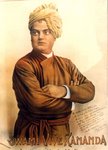Don't be fooled by me. Don't be fooled by the face I wear. For I wear a mask, I wear a thousand masks, masks that I am afraid to take off, and none of them are me. Pretending is an art that is second nature with me, but don't be fooled, for God's sake don't be fooled. I give you the impression that I'm secure, that all is sunny and unruffled with me, within me as well as without, that confidence is my name and coolness my game, that the water's calm and I'm in command, and that I need no one. But don't believe me, please.
My surface may seem smooth, but my surface is my mask, my ever-warying ever-concealing mask. Beneath lies no smugness, no complacence. Beneath dwells the real me in confusion, in fear, in aloneness. But I hide this. I don't want anybody to know it. I panic at the thought of my weakness and fear being exposed. That's why I frantically create a mask to hide behind, a nonchalant, sophisticated facade, to help me pretend, to shield me from the glance that knows. But such a glance is precisely my salvation. My only salvation, and I know it. That is if it is followed by acceptance, if it is followed by love. It's the only thing that liberates me, from myself, from my own self-built prison walls, from barriers that I so painstakingly erect.
It's the only thing that will assure me of what I can't assure myself, that I'm really worth something. But I don't tell you this. I don't dare. I'm afraid to. I'm afraid you'll think less of me, that you'll laugh, and your laugh would kill me. I'm afraid that deep down I'm nothing, that I'm just no good, and that you will see this and reject me. So I play the game, my desperate pretending game, with a facade of assurance without, and a trembling child within.
And so begins the parade of masks, and my life becomes a front. I idly chatter to you in the suave tones of surface talk. I tell you everything that is really nothing. And nothing of what is everything, of what is crying within me. So when I'm going through my routine do not be fooled by what I'm saying. Please listen carefully and try to hear what I'm not saying, what I'd like to be able to say, what for survival I need to say, but what I can't say. I dislike hiding. Honestly. I dislike the superficial game I'm playing, the superficial, phony game. I'd really like to be genuine and spontaneous, and me, but you've got to help me.
You've got to hold out your hand even when that's the last thing I see to want, or need. Only you can wipe away from my eyes the blank stare of the breathing dead. Only you can call me into aliveness. Each time you're kind, and gentle, and encouraging, each time you try to understand because you really care, my heart begins to grow wings, very feeble wings, but wings. With your sensitivity and empathy, and your power to understanding, you can breathe life into me. I want you to know that.
I want you to know how important you are to me, how you can be a co-creator of the person that is me if you choose to. Please choose to. You alone can break down the wall behind which I tremble. You alone can release me from my shadow-world of panic and uncertainty, from my lonely prison. So do no pass me by. It will not be easy for you. A long conviction of worthlessness builds strong walls. The nearer you approach me, the blinder I strike back. I fight against the very thing that I cry out for. But I am told that love is stronger than strong walls, and in this lies my hope my
only hope.
Please try to beat down those walls with firm hands, but with gentle hands, for a child is very sensitive. Who am I you may wonder? I am someone you know very well. For I am every man and I am every woman you meet.


